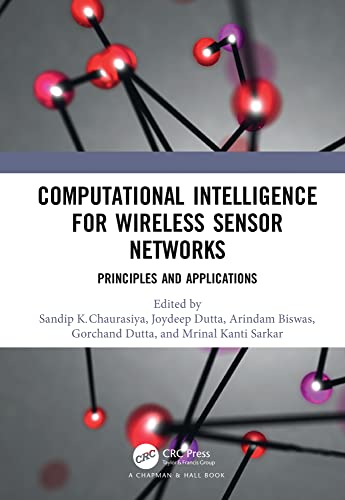
English | 2022 | ISBN: 036760888X | 215 pages | True PDF | 12.75 MB
Computational Intelligence for Wireless Sensor Networks: Principles and Applications provides an integrative overview of the computational intelligence (CI) in wireless sensor networks and enabled technologies. It aims to demonstrate how the paradigm of computational intelligence can benefit Wireless Sensor Networks (WSNs) and sensor-enabled technologies to overcome their existing issues.
This book provides extensive coverage of the multiple design challenges of WSNs and associated technologies such as clustering, routing, media access, security, mobility, and design of energy-efficient network operations.
It also describes various CI strategies such as fuzzy computing, evolutionary computing, reinforcement learning, artificial intelligence, swarm intelligence, teaching learning-based optimization, etc. It also discusses applying the techniques mentioned above in wireless sensor networks and sensor-enabled technologies to improve their design.
The book offers comprehensive coverage of related topics, including:
Emergence of intelligence in wireless sensor networks
Taxonomy of computational intelligence
Detailed discussion of various metaheuristic techniques
Development of intelligent MAC protocols
Development of intelligent routing protocols
Security management in WSNs
This book mainly addresses the challenges pertaining to the development of intelligent network systems via computational intelligence. It provides insights into how intelligence has been pursued and can be further integrated in the development of sensor-enabled applications.



